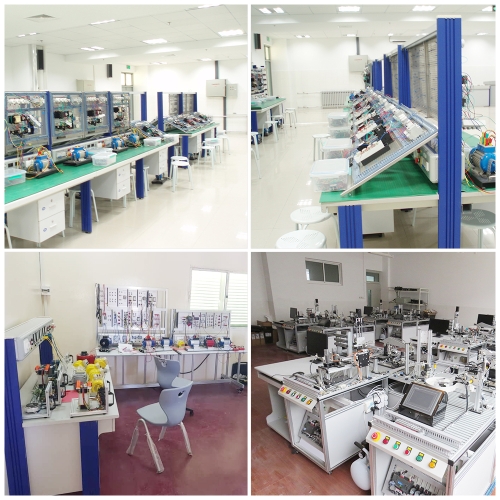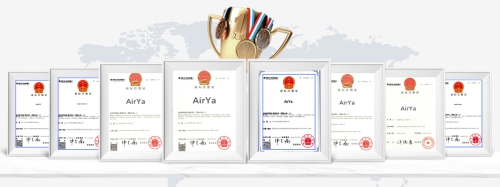AFO026 Oil Filtration Machine For Stamping Oil Oil Purification System
Impurities: <1μm
Work pressure: 0.6~1Mpa
Payment Terms: TT , LC , Others
Oil filtration machines are specialized equipment used to remove impurities and contaminants from various types of oils, including lubricating oils, hydraulic oils, transformer oils, and more. These machines are designed to maintain the cleanliness and quality of the oil, thereby enhancing the performance and lifespan of the equipment or machinery that relies on it.
Applications
Oil filtration machines find applications in various industries, including automotive, manufacturing, power generation, aerospace, and more. They are used to maintain the cleanliness of oils in engines, hydraulic systems, turbines, transformers, and other equipment. By employing effective oil filtration machines, industries can reduce equipment downtime, improve operational efficiency, extend the lifespan of machinery, and minimize the risk of costly repairs or replacements. The specific design and features of an oil filtration machine can vary depending on the intended application and the requirements of the oil being filtered.
Features
AirYa oil filtration machines use the centrifugal separation method and have the following advantages:
High Efficiency: Centrifugal separation is highly efficient in removing solid particles and water from oil. It can effectively separate and collect contaminants of various sizes, ranging from large particles to submicron-sized particles. The centrifugal force generated during the process allows for efficient separation, resulting in clean oil.
Continuous Operation: Centrifugal separators can operate continuously, allowing for uninterrupted filtration and purification of oil. They can handle a continuous flow of oil without the need for frequent stoppages, making them suitable for applications that require continuous operation and minimal downtime.
Fast Processing: Centrifugal separation is a relatively fast method for oil filtration. The separation process occurs within a short period, allowing for quick turnaround times. This is particularly advantageous in industries where time-sensitive operations are involved.

Scalability: Centrifugal separators are available in various sizes and capacities, making them suitable for a wide range of applications. They can be scaled up or down to accommodate different flow rates and volumes of oil. This scalability allows for flexibility in implementing centrifugal separation in various industries and applications.
Reduced Maintenance: Centrifugal separators generally have fewer moving parts compared to other filtration systems, which leads to reduced maintenance requirements. They are designed for reliable and long-lasting operation with minimal wear and tear. This helps to minimize maintenance costs and downtime associated with system maintenance.
Versatility: Centrifugal separators can be used for different types of oils, including lubricating oils, hydraulic oils, transformer oils, and more. They are suitable for a variety of industries such as manufacturing, power generation, automotive, marine, and aviation. The versatility of centrifugal separation makes it a widely applicable method for oil filtration and purification.
Extend Equipment Life: By efficiently removing contaminants from the oil, centrifugal separation helps to protect equipment and machinery from premature wear and damage. Cleaner oil with reduced particle contamination can extend the lifespan of critical components, such as bearings, gears, and seals, resulting in improved equipment reliability and reduced maintenance costs.
The most important point is that there is no need for high-temperature heating, no damage to the oil, and the filtered oil can reach the quality of new oil.
The importance of stamping oil filtration
Oil filtration machines play a vital role in maintaining the quality and performance of stamping oil in metal stamping operations. Stamping oil, also known as drawing or forming oil, is used to lubricate the metal surfaces and tooling during the stamping process. It helps reduce friction, heat generation, and wear, ensuring smooth metal forming and preventing defects. However, stamping oil can become contaminated with debris, metal fines, contaminants, and oxidation byproducts, which can affect its lubricating properties and compromise the quality of stamped parts. Here is a professional perspective on the role of oil filtration machines for stamping oil:

Contaminant Removal: Stamping operations can generate a variety of contaminants, including metal fines, dirt, dust, and debris. These contaminants can accumulate in the stamping oil, leading to increased friction, tool wear, and decreased surface finish quality of the stamped parts. Oil filtration machines effectively remove these contaminants, using methods such as mechanical filtration, magnetic filtration, or centrifugal separation. By maintaining clean oil, filtration machines ensure optimal lubrication, reduce wear, and minimize the risk of defects in the stamped parts.
Particle Size Control: Stamping oil can contain particles of various sizes, ranging from large metal fines to microscopic particles. Oil filtration machines are designed to capture and remove particles of different sizes, ensuring that the oil remains free from abrasive or contaminating particles. By controlling the particle size distribution, filtration machines help maintain the cleanliness and integrity of the stamping oil, optimizing its lubricating properties and preventing tool wear and surface defects.
Moisture Control: Moisture can enter the stamping oil through various sources, such as atmospheric humidity, water ingress, or cooling systems. Water in stamping oil can lead to corrosion, decreased lubricity, and reduced tool life. Oil filtration machines equipped with moisture removal capabilities, such as coalescing filters or vacuum dehydration units, help remove water from the oil, ensuring optimal lubrication and preventing moisture-related issues in the stamping process.
Temperature Control: Stamping operations can generate significant heat due to the high pressures and friction involved. Elevated temperatures can accelerate oil degradation and reduce its lubricating properties, leading to increased wear and potential tool failure. Oil filtration machines can incorporate cooling features or heat exchangers to control oil temperature and maintain optimal lubricating performance. By managing temperature, filtration machines help preserve the stamping oil's properties, prolong tool life, and ensure consistent stamping quality.
Monitoring and Maintenance: Regular monitoring of the stamping oil's condition and the performance of the filtration machine is crucial for optimal stamping operations. Periodic oil sampling and analysis, as well as monitoring key parameters such as particle counts, viscosity, acidity, and oil quality, provide valuable insights into the effectiveness of the filtration machine. Adhering to recommended maintenance practices, such as filter replacement, system cleaning, and oil change intervals, helps maintain the reliability and efficiency of the oil filtration machine.

